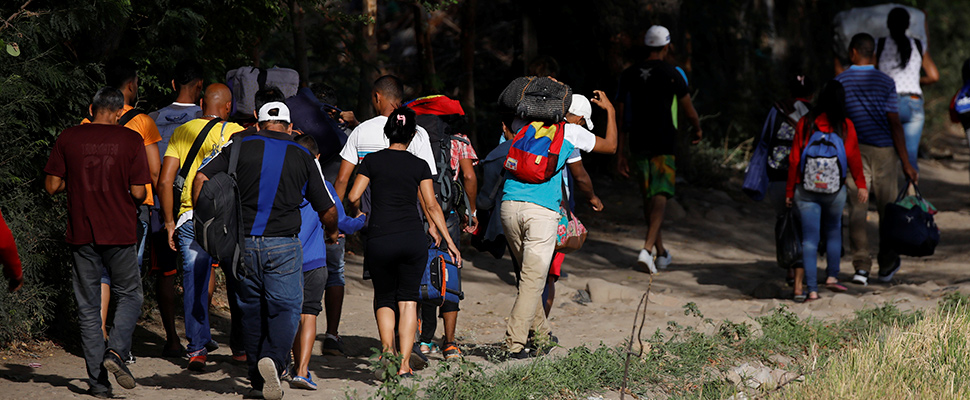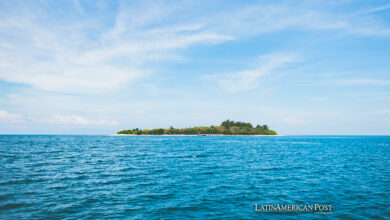UN asks for more help to deal with the Venezuelan refugee crisis
UNHCR estimates that 4.3 million Venezuelans have fled the economic and political instability in their country

Venezuelans take their belongings on an illegal road after entering Colombia illegally. REUTERS / Carlos Garcia Rawlins
Reuters | Anthony Boadle
Listen to this article
Leer en español: ONU pide más ayuda para lidiar con la crisis de los refugiados venezolanos
The United Nations High Commissioner for Refugees, Filippo Grandi, called on Sunday for more humanitarian aid for Venezuelan refugees who are escaping to neighboring countries, where social services are collapsing and generating tension at the local level.
Grandi had planned to visit the Brazilian border town of Pacaraima this weekend, but authorities advised him to cancel it because of the protests of annoying residents with the arrival of more than 500 Venezuelans a day.
Inhabitants of Pacaraima closed their tents on Saturday and demonstrated through the streets shouting "Go Away Venezuelans," "Pacaraima is ours," "Go Away UN" and "Brazil is for Brazilians."
UNHCR estimates that some 4.3 million Venezuelans have fled from the economic and political instability in their country, especially to Colombia – where there are 1.2 million – Peru, Chile, and Ecuador. Some 180,000 have stayed in Brazil.
The UN and several NGOs launched a humanitarian request of $ 770 million at the beginning of the year and have received less than 180 million, Grandi said in a telephone interview after visiting Chile and Brazil.
Also read: Hunger driving migration in drought-hit Central America – U.N.
"This is really one of the humanitarian requests with the lowest funding in the world for one of the biggest crises," he said.
Financial institutions such as the World Bank and the Inter-American Development Bank are committed, but should accelerate their assistance to help maintain health and education systems, he said.
"We protect the most vulnerable, but the rest must be done by older actors with more money, and I don't see that happening even in any part of the region," he said.
Grandi said there are signs of a spread of anti-immigration sentiment in the region, reflected in the increasing restrictions on the movement of Venezuelans in the Andean countries.




